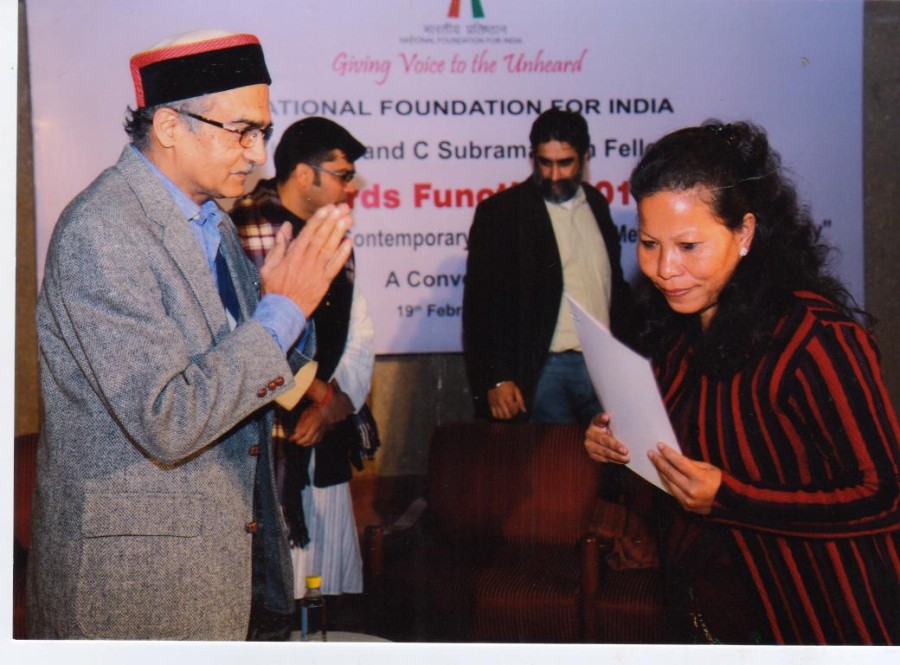Recognizing and Uniting Women Leaders in Assam
By: Katie Douglas, WEA Intern
All her life Sinumoni Bora has been an advocate on behalf of women’s rights. Sinumoni was born to an impoverished tribal family in the city of Jorhat, India. From an early age she was supporting her family and tutoring other youth. By the time she was an adult, Sinumoni had already established herself in a variety of grassroots women’s committees, going on to create a women’s self-help group to tutor rural women in literacy and train them to cultivate sustainable sources of income. Sinumoni additionally became an advocate on violence against women, leading campaigns for justice for women who had been murdered or sexually assaulted. As a volunteer for People’s Action for Development, Sinumoni is an inspirational and exemplary figure of empowerment within a project that aims to train female leaders from the Assam region to speak on the impacts of climate change, development, and gender inequality in their lives.
People’s Action for Development (PAD) deals primarily with the issues of gender justice, indigenous rights, land rights and climate change. With the support of WEA, PAD has played a critical role within the Assam region by addressing these issues through the identification of local women leaders and young girls to take part in leadership trainings. In a society where women often find themselves confined within strict patriarchal systems, there is little room to express their needs or voice their solutions to the increasing issues of climate change, development, and threats to indigenous traditional livelihoods.

WEA and PAD’s partnership supported a training on women’s leadership to build skills around environmental protection and climate change in Jorhat. Photo: People’s Action for Development
Newly developed extractive industry policies in the Assam region have resulted in widespread and illegal mining, deforestation, water contamination, loss of agricultural lands, mega dam construction, and the subsequent increase in climate change-related issues. The northeastern region of India, in which Assam is located, is one of the most biodiverse areas in the world, and maintains nearly 44% of the country’s forest. Yet from 2001 to 2012 approximately 548,440 hectares of the forest were cleared. The impacts of such massive deforestation have been felt in particular by women as they lose further control over their traditional sources of livelihood, are being displaced by new populations, and levels of poverty and sexual or economic exploitation rise. The only way to change such vulnerability is to give these women the resources from which they can make their voices heard.
PAD’s top priority is to develop women’s leadership in order for them to hold positions at the forefronts of social and political movements. For this to happen, local women leaders from the Assam region take part in leadership trainings, and gather to discuss the impacts of development projects, and environmental degradation in the lives of women in their communities. From this these grassroots women activists are able to unite in recognizing the ways in which they are discriminated against and their voices disregarded. In many cases these meetings represent the first time these women have been able to leave their communities and gather with other women in the interest of opening their minds on new ways to critically address climate change and gender injustice.
As a volunteer for PAD, Sinumoni works to help these women organize and to understand their own potential as community leaders. For her work volunteering with PAD and other organizations she was awarded the C. Subramanian Award by the National Foundation of India, an award that given to volunteers and community leaders working tirelessly to promote volunteer efforts in food security and sustainable livelihoods. Her leadership is an inspiration to women across the globe and a lesson in how the vision of female leadership can help a community to thrive.

Sinumoni Bora, a volunteer with WEA and PAD’s project, receiving the C. Subramanium Award given by the National Foundation of India for her contributions as community leader. Photo: People’s Action for Development
